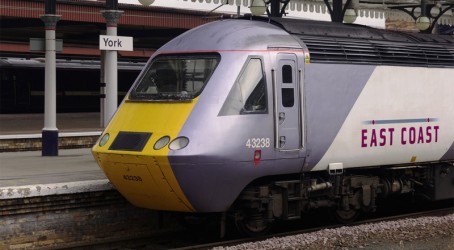With the fiftieth anniversary of the publication of the Beeching report having just passed, there is perhaps a certain amount of irony about members of the current day government getting in a muddle over how to run the rail network. Admittedly some of the policy failings lie with the previous Labour administration – but, that said, the current incumbents are hardly covering themselves in glory.
The problems stem from the failings of the rail franchise process – which officials from the Department for Transport have decided to restart, with no cancellations, but certainly numerous delays.
The process was derailed over the West Coast franchise fiasco when the awarded contract had to be scrapped due to Department for Transport (DfT) errors. Virgin Trains had lost out to rival transport company FirstGroup for a new West Coast franchise. But after Sir Richard Branson questioned FirstGroup's ability to live up to its franchise promises for the whole length of the 13-year 4-month contract, transport secretary Patrick McLoughlin pulled the plug on the whole process, saying “unacceptable mistakes” were made by officials at the DfT.
Following the lengthy dispute and the subsequent abandonment, Virgin and the DfT reached a deal to run the franchise until November 2014. However, after much deliberation, a new franchise timetable has been announced by McLoughlin, which will mean that a new West Coast franchise will not start until April 2017 at the earliest, with Virgin negotiating with the DfT over continuing until then.
But that's not the end of the delays – the start-up dates of a number of other franchises have also been put back. South Eastern, for example, has been put back from April 2014 to June 2018.
McLoughlin has also announced that he was opening the bidding to private companies for a new franchise for the East Coast mainline. This key London-to-Scotland route has been run under the control of the DfT since November 2009 after transport company National Express pulled out. McLoughlin said the new franchise would begin in February 2015.
The West Coast debacle led to two independent reviews – one on the West Coast fiasco and the other on the whole franchise process. The new delayed timescales are the direct result of the reviews.
The new franchise timetable shows that, for example, the Great Western franchise, run by FirstGroup and due to end in October this year, will not start until July 2016, while the Northern franchise, due to end in April 2014, will not begin until February 2016.
The first of the new franchises to start will be Essex Thameside, where the franchise ends in May this year and will begin in September 2014. As in the case of Virgin, current operators will negotiate with the DfT about carrying on during their franchise “overtime”.
According to McLoughlin the new programme was a major step forward in delivering tangible improvements to rail services, providing long-term certainty to the market and supporting our huge programme of rail investment. “Above all, in future franchise competitions we are placing passengers in the driving seat by ensuring that their views and satisfaction levels are taken into account when deciding which companies run our railway services.
“Franchising has been a force for good in the story of Britain's railways, transforming an industry that was in decline into one that today carries record numbers of passengers,” he says.
But rail unions are up in arms about the whole process, reacting with dismay to the East Coast news, pointing out that the private sector had twice given up the franchise, with GNER pulling out some years ago. They also highlighted the fact that the taxpayer is likely to have to foot a bill as high as £50 million over the failings within the DfT and the botched West Coast franchise.


RMT was particularly vocal, saying that the proposed re-privatisation of East Coast, after the public sector rescued the service following two private failures, proved conclusively that the politicians had learnt nothing. The union said that the move was “politically-inspired” and was designed to flog off what was a publicly-owned intercity route before the next election regardless of the consequences.
Even the more moderate TSSA rail union had its say, with leader Manuel Cortes adding: “The Tories are just like the Bourbons when it comes to rail - they ignore all the lessons of history. The £50 million West Coast line fiasco revealed that private franchises are a shambles. So they go and privatise the only successful publicly-owned franchise, the East Coast line.
“This is an act of political spite to reward their friends in the City and to tie the hands of an incoming Labour government in 2015. The most expensive rail network in Europe is about to get even more expensive.”
The controversy has been keenly felt by Richard Brown, who headed the independent inquiry into franchises and who is chairman of the newly formed Franchise Advisory Panel. Despite the furore, Brown says he is pleased that the government has widely engaged with the recommendations that he made in the wake of the West Coast fiasco.
“It is clear to me that this announcement represents an opportunity for government to seek competitive and innovative proposals from the existing train operating companies and potential new market entrants to demonstrate how they will continue to improve services for passengers.
“The clarity around the franchise programme will also allow fresh energy to be brought to the urgent task of developing closer partnerships with Network Rail to drive out costs from the industry and provide a better deal for passengers and taxpayers.”
Graham Smith, director-general of the Rail Delivery Group, which brings together the owners of Britain's train operating companies, freight operating companies and infrastructure provider Network Rail, also supported the government's new programme-form rail franchising.
“Britain's railways have enjoyed significant growth and investment - restoring passenger, taxpayer and investor confidence in the franchising process will allow this growth to continue.
“A restart of the franchising programme, a transparent procurement process and clarity on what government wishes the passenger railway to provide will all help re-establish confidence and enable franchisees to deliver improved services for passengers.
“Rail Delivery Group members will continue to work collaboratively with government to deliver the new programme, including franchise extensions where these are required, to get the best deal for passengers.”
And so the controversy rumbles on. A key recommendation of the Brown Review into rail franchising was that the government should run no more than three to four competitions a year to avoid saturating the market. This, it is said, ensures that the DfT and the market are sufficiently resourced to deliver the best value for money for both passengers and taxpayers. So the new process is grounded in an element of sense. But with the railway industry, that's not guarantee that it will successfully come to fruition.